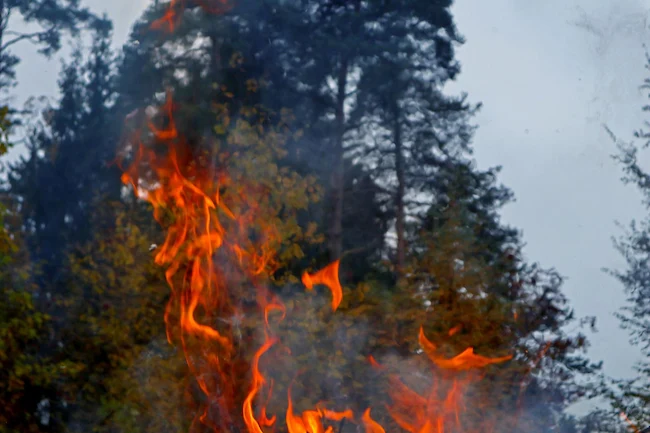The BlueFire Wilderness Lawsuit represents a significant legal challenge in wilderness therapy. Initiated in 2014, it involves allegations against BlueFire Wilderness, a therapy program known for its outdoor-based therapeutic approaches. This lawsuit has garnered attention due to its implications for therapy standards and patient care practices. We will explore the various facts of the lawsuit, understanding its background, legal intricacies, and the broader impact on the industry and public perception.

Background of BlueFire Wilderness
Kathy Rex serves as the Executive Director and Co-Founder of BlueFire Wilderness Therapy. With a profound commitment to helping young people, Kathy has been instrumental in shaping BlueFire’s vision and operational approach. Under her guidance, BlueFire Wilderness Therapy has developed a reputation for its innovative use of outdoor experiences combined with therapeutic interventions. Her work emphasizes the importance of individualized care and the transformative power of nature in therapy.
Detail
Central to the BlueFire Wilderness Lawsuit are allegations of negligence and unprofessional conduct. Plaintiffs in the lawsuit, comprising former participants and their families, have raised concerns about the safety protocols, staff qualifications, and therapeutic efficacy at BlueFire Wilderness. The lawsuit details specific incidents and general practices that allegedly led to physical and emotional harm to participants.
Legal Implications
The BlueFire Wilderness Lawsuit holds significant legal ramifications. It challenges the regulatory oversight of wilderness therapy programs and questions the legal responsibilities of such institutions. If the plaintiffs succeed, the lawsuit could set a precedent for monitoring and regulating similar programs, potentially leading to more stringent industry standards and legal accountability.
Impact on the Wilderness Therapy Industry
Beyond BlueFire Wilderness, the BlueFire Wilderness Lawsuit has stirred a debate in the wilderness therapy industry. It highlights the need for standardized practices and oversight in a field that often operates in remote and unregulated environments. The outcome of this lawsuit could lead to industry-wide changes, affecting operational procedures, staff training, and participant safety measures.
More Read...
What might be found outside a hipster cafeteria| A Glimpse into the World Outside
Public Reaction
The public has responded to the Wilderness Lawsuit with mixed reactions. While some advocate for the therapeutic benefits of wilderness programs, others express concern over the lack of regulation and potential risks. Social media platforms and online forums have become battlegrounds for discussions about the efficacy and ethics of such programs, with the lawsuit often cited as a case study.
Expert Opinions
Legal experts and mental health professionals have closely followed. Their analysis suggests the lawsuit could lead to better-defined legal frameworks for wilderness therapy. Furthermore, industry experts believe this case could drive improvements in therapy practices, enhancing participant safety and treatment outcomes.
Examining the Therapeutic Methods in Question
In this section we will discuss the specific therapeutic methods employed by BlueFire Wilderness that have come under scrutiny in the Wilderness Lawsuit. It will cover the techniques used, their intended benefits, and why they are a point of contention in the lawsuit.
Testimonies from Former Participants and Families
Here, the focus will be gathering and presenting firsthand accounts and testimonies from former participants of BlueFire Wilderness and their families. It will provide personal insights into the experiences that led to the BlueFire Lawsuit and its impact on the individuals involved.
Regulatory Framework for Wilderness Therapy Programs
This heading will explore the existing regulatory framework governing wilderness therapy programs like BlueFire Wilderness. It will discuss what regulations are currently in place, any gaps in these regulations, and how the BlueFire Lawsuit might influence future regulatory measures.
Work Camping Belize: A Unique Adventure Awaits
Comparing BlueFire Wilderness with Other Therapy Programs
This section compares BlueFire Wilderness’s approach and practices with those of other wilderness therapy programs and traditional therapy methods. This comparison will highlight what sets BlueFire Wilderness apart and how these differences may have contributed to the Wilderness Lawsuit.
The Role of Mental Health Professionals in Wilderness Therapy
This part will discuss the role and responsibilities of mental health professionals in wilderness therapy settings. It will examine how their involvement (or lack thereof) in programs like BlueFire Wilderness can impact therapeutic outcomes and potentially contribute to situations like the BlueFire Wilderness Lawsuit.
Recommendations for Wilderness Therapy Providers
The final section will offer recommendations for wilderness therapy providers in light of theWilderness Lawsuit. It will propose best practices for ensuring participant safety, maintaining professional standards, and improving therapeutic outcomes to prevent similar incidents in the future.
Conclusion
As the BlueFire Wilderness Lawsuit progresses, its outcomes will likely have lasting effects on BlueFire Wilderness and similar organizations. This case could become a catalyst for reform, leading to higher standards in wilderness therapy.
FAQs
What is the BlueFire Wilderness Lawsuit about?
The BlueFire Wilderness Lawsuit involves allegations against BlueFire Wilderness, a wilderness therapy program. Former participants and their families filed the lawsuit, claiming negligence and unprofessional conduct by the program.
How has the Wilderness Lawsuit impacted public perception of wilderness therapy programs?
The BlueFire Wilderness has significantly impacted public perception of wilderness therapy programs. It has sparked debate and concern over these programs’ safety, efficacy, and regulatory oversight. While some continue to advocate for their benefits, others call for stricter regulations and scrutiny, highlighting the industry’s need for standardized practices and improved safety measures.
What legal implications could the BlueFire Wilderness Lawsuit have on the wilderness therapy industry?
The BlueFire Lawsuit could have far-reaching legal implications for the wilderness therapy industry. If the plaintiffs succeed, it could set a precedent for legal accountability and regulatory standards within the industry.
What are some critical criticisms of BlueFire Wilderness highlighted in the lawsuit?
Key criticisms in the lawsuit include alleged negligence in safety protocols and concerns over the qualifications and training of the staff. Plaintiffs also raise questions about the therapeutic efficacy of the program’s that they may be ineffective and potentially harmful to participants.
What changes might the BlueFire Wilderness Lawsuit bring about in the wilderness therapy industry?
Following the BlueFire Wilderness Lawsuit, the wilderness therapy industry might change significantly. These include implementing stricter regulations, enhanced safety protocols, and more rigorous staff training programs.


